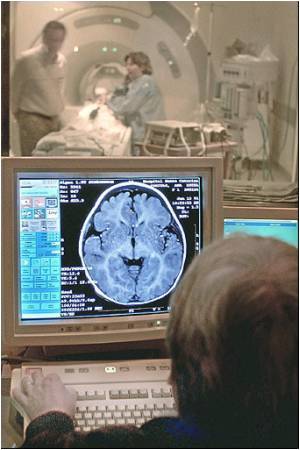
Linda Hsieh-Wilson, Ph.D., explained that the sugar is not table sugar (sucrose), but one of many other substances produced in the body's cells that qualify as sugars from a chemical standpoint.
Named O-linked beta-N-acetylglucosamine - or "O-GlcNAc" - it helps in orchestrating health and disease at their origins, inside the billions of cells that make up the body.
O-GlcNAc does so by attaching to proteins that allow substances to pass in and out of the nucleus of cells, for instance, and helping decide whether certain genes are turned on or off.
In doing so, O-GlcNAc sends signals that may be at the basis of cancer, diabetes, Alzheimer's disease and other disorders. Research suggests, for instance, that proteins loaded up with too much O-GlcNAc can't function normally.
Hsieh-Wilson described how research in her lab at the California Institute of Technology and Howard Hughes Medical Institute implicate O-GlcNAc in memory loss and cancer.
Advertisement
Called protein glycosylation, it helps nerves and other cells communicate with each other in ways that keep the body coordinated and healthy. When O-GlcNAc is attached to a protein, that binding process is known as O-GlcNAc glycosylation.
Advertisement
They identified more than 200 proteins bearing O-GlcNAc attachments or tags, many for the first time.
The research was done in mice, stand-ins for humans in research that cannot be done on people. Some of the proteins carrying O-GlcNAc were involved in regulating processes like drug addiction and securing long-term storage of memories.
O-GlcNAc's effects on one particular protein, CREB, got the scientists' attention. CREB is a key substance that turns on and regulates the activity of genes.
Many of the genes in cells are inactive at any given moment. Substances like CREB, termed transcription factors, turn genes on.
Hsieh-Wilson found that when O-GlcNAc attached to CREB, CREB's ability to turn on genes was impaired. When the researchers blocked O-GlcNAc from binding CREB, the mice developed long-term memories faster than normal mice.
"We're far from understanding what happens in humans," Hsieh-Wilson emphasized.
"Completely blocking O-GlcNAc might not be desirable. Do you really want to sustain all memories long-term, even of events that are best forgotten? How would blocking the sugar from binding to other proteins affect other body processes? There are a lot of unanswered questions. Nevertheless, this research could eventually lead to ways to improve memory," Hsieh-Wilson added.
In a related study, Hsieh-Wilson found that O-GlcNAc interacted with another protein in ways that encourage the growth of cancer cells, suggesting that blocking its attachment might protect against cancer or slow the growth of cancer.
And indeed, in mouse experiments, blocking O-GlcNAc resulted in much smaller tumours.
Source-ANI











